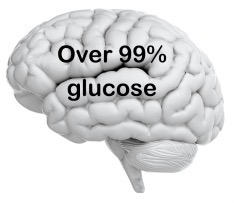Tomorrowhealthcare@runbox.com
Pitfalls of a Meat diet
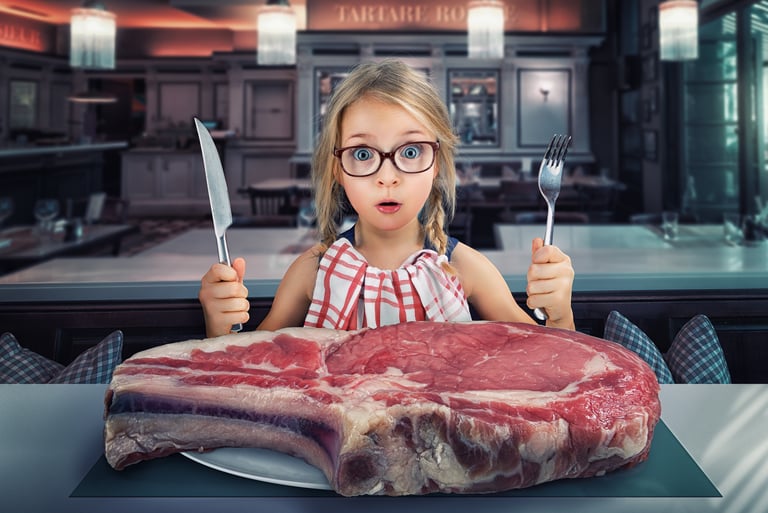

If you were brought up on meat and ate little vegetables most days of the week, you might have ended up with cancer at around 40 years old, as I did.
As is well known, meat is saturated with fat. Often, the meat we purchase is frozen.
Cooking methods such as barbecues, frying in oil, margarine, or butter, and overcooking will remove most of the nutrients from the meat.
There is strong evidence that eating meat increases the risk of breast and other cancers.
Problems caused by Meat
Eating meat over many years may cause many different problems.
As we know, flesh decomposes as soon as an animal is killed. Nowadays, this is controlled, to some extent, by freezing.
Some meat bought from supermarkets comes from a stock frozen many months or even many years ago (a recent TV programme highlighted this incredible fact).
Meat is the most difficult food to digest.
It can take up to a week or longer to digest animal food, especially for the elderly. If you have been eating meat regularly in the past, your colon has never been clear of this messy digestive process, causing many problems, such as the accumulation of amines (compounds derived from ammonia) in the intestines, liver, and kidneys.
These amines encourage the development of cancer.
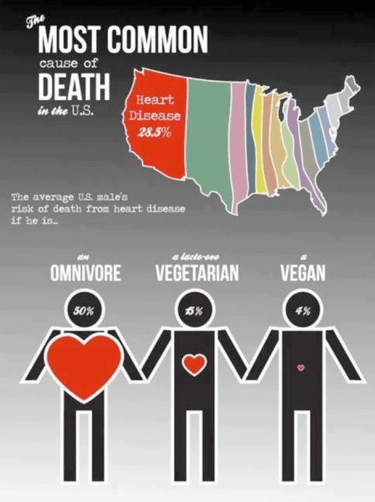

The Mucoid Plaque
The continuous accumulation of meat in the intestines will eventually cause the deposit of hardened, undigested, putrefying food on the walls of the colon. It could also cause a prolapsed colon.
Most European and American meat-eaters are believed to carry between 5 and 10 pounds of putrefying matter in their large and small intestines. Yuck!
This process causes a degeneration of the small and large intestines.
Liquids are absorbed in the large intestines. If a person has a mucoid plaque, the fluid has to pass through these hardened, undigested faeces before reaching the bloodstream.
This mixture of blood and faeces will then travel through your heart, kidneys, liver, and other organs and weaken them.
What a recipe for disaster! This problem will never occur with a vegan diet.
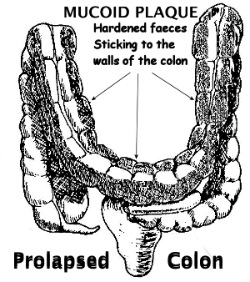

Obesity


As this picture shows, it is common for meat-eaters to have deposits of undigested food in their intestines.
These create swollen intestines that can be 12 to 15” wide, with only a tiny opening for food to pass through.
Actor John Wayne was in this situation before his death.
If all this is not bad enough, saturated fat stops the proper functioning of essential organs and blood vessels. This, in turn, can lead to tumours, high cholesterol, atherosclerosis (hardening of the arteries), irritable bowel syndrome, haemorrhoids, diverticulitis, and... cancer.
Weak kidneys, liver, and intestines caused by the above process lead to heart degeneration and faster ageing.
Blocked arteries from meat
The fat content of meat will deposit and cause the eventual blockage of arteries leading to severe problems needing surgery. However, surgery will only provide a temporary fix unless a change in diet accompanies it.
Chemicals in the Meat
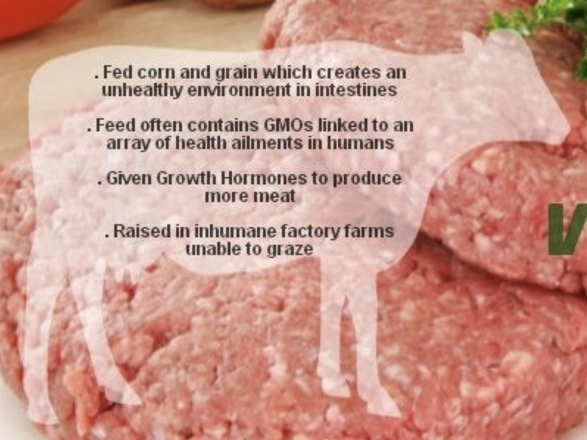

How would you like a cocktail of sex hormones, antibiotics, steroids and tranquillisers?
Most animals are given sex hormones such as oestrogen, progesterone and androgen to make them grow faster. This promotes the development of Kidney disease, hypertension and low blood sugar in humans.
Our continuous intake of animal food saturated with sex hormones also contributes to the feminisation of males and the masculinisation of females.
Antibiotics and Steroids are mixed in the animals' food, so they don't die too quickly. This use of antibiotics has weakened the effectiveness of the antibiotics we need when we get sick.
Tranquillisers are added to prevent animals from fighting with each other.
Should we really eat meat?
Let’s consider the following facts:
The molars and premolars in our mouths are designed for grinding and breaking down food.
The sharp and powerful teeth of animals, meant to eat meat, are designed to tear the food.
Our saliva is alkaline, helping us digest plants. A lion's saliva is acidic, as it generates roughly ten times the amount of hydrochloric acid a human generates. This makes the digestion of meat very easy.
The distance between our mouth and anus is about 10 metres (30 feet). This allows us to absorb all the vitamins, minerals and other nutrients needed for good health. A lion's digestive system is about three times its body's length, and animal food digestion is quick. It does not get a chance to decay.
All this tells us we are not "designed" to eat much meat.
Our digestive system results from what our ancestors have ingested for hundreds of thousands of years. Contrary to some belief, our recent ancestors ate little meat as it was expensive. Modern methods of preserving meat (freezing) were unavailable, and the meat had to be eaten soon after killing the animal.
People fed themselves more on vegetables and other products they could grow locally. It will take a very long time (if ever) before our body can digest the food we ignorantly throw at it.
Meat dangers are one of the primary reasons for the massive increase in Cancer in the past century.
Mr Richard McDonald and Mr Ray Kroc have undoubtedly damaged the health of many people by introducing their fast-food restaurants.
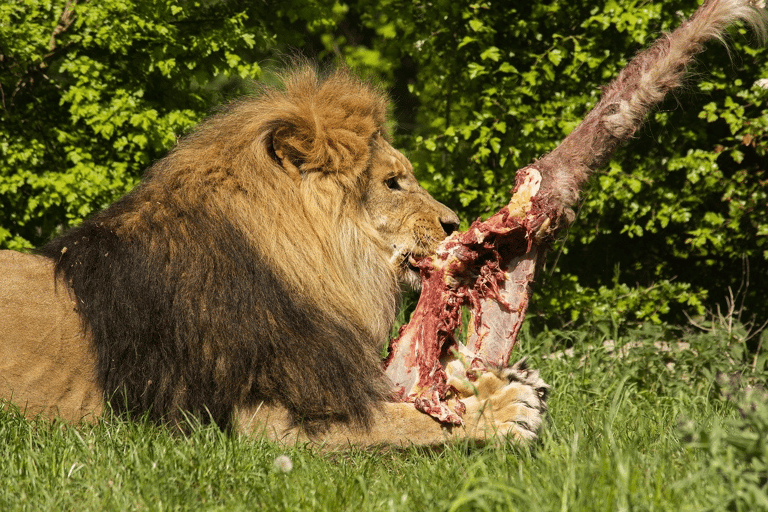

Any worthy brain surgeon will tell you that your brain is 99% glucose. Your liver and other organs run on glucose. NOT ON PROTEIN.
